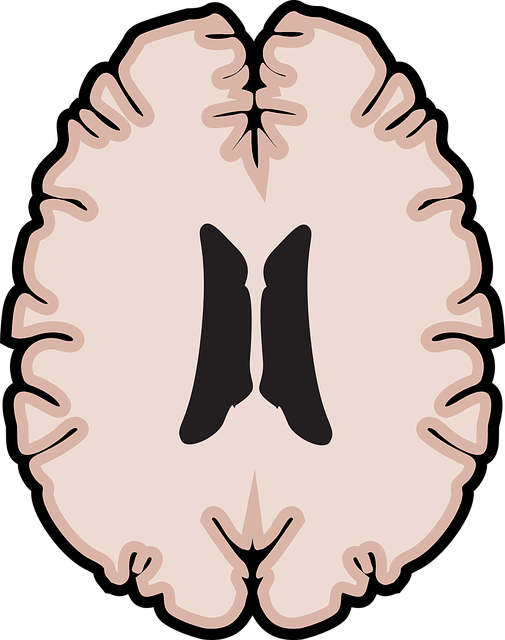Highlands Ranch Adolescent and Teen Therapy centers prioritize risk management planning for patient and provider safety, employing a multifaceted approach that includes staff training (like Healthcare Provider Cultural Competency Training) and stress management techniques. They identify potential hazards such as emotional triggers, behavioral risks, and interpersonal conflicts through comprehensive case evaluations and environmental assessments. Strategies like mindfulness meditation, self-care routines, and healthy habits are encouraged to bolster emotional intelligence and resilience in teens. The program's robust risk management plan goes beyond crisis intervention, incorporating tailored strategies for unique adolescent mental health challenges while prioritizing therapists' self-care. Continuous evaluation ensures safe practices can be adapted based on client needs, fostering a nurturing environment for healing and growth.
“In the sensitive field of mental health care, risk management planning is an indispensable tool for professionals. This article explores this crucial aspect, focusing on strategies tailored to Highlands Ranch Adolescent and Teen Therapy. We’ll delve into understanding the unique risks within this context, from identifying potential hazards to developing robust plans.
By following a structured approach, we aim to enhance safety measures and ensure optimal care at Highlands Ranch Adolescent and Teen Therapy, ultimately fostering a secure environment for both clients and therapists.”
- Understanding Risk Management in Mental Health Care
- Identifying Potential Risks at Highlands Ranch Adolescent and Teen Therapy
- Developing a Comprehensive Risk Management Plan
- Implementing and Monitoring Strategies for Safe Practice
Understanding Risk Management in Mental Health Care

In the realm of mental health care, risk management planning is a dynamic and essential aspect that goes beyond mere compliance. It involves a comprehensive strategy to ensure the safety and well-being of both patients and healthcare providers, particularly in challenging settings like Highlands Ranch Adolescent and Teen Therapy centers. Here, young individuals often present with complex and diverse needs, necessitating a nuanced approach to risk assessment and mitigation. By integrating robust risk management practices, mental health professionals can create a secure environment that fosters healing and growth.
Effective risk management in this context requires a multifaceted approach. It entails recognizing potential hazards—be it emotional triggers, behavioral risks, or inter-personal conflicts—and implementing proactive measures. This includes regular staff training, such as Healthcare Provider Cultural Competency Training, to handle diverse client populations sensitively. Additionally, focusing on stress management and anxiety relief techniques can empower both therapists and clients to navigate turbulent emotions. Through these strategies, mental health professionals in Highlands Ranch can ensure a supportive atmosphere, ultimately enhancing the quality of care provided.
Identifying Potential Risks at Highlands Ranch Adolescent and Teen Therapy

At Highlands Ranch Adolescent and Teen Therapy, identifying potential risks is a multifaceted process that involves assessing various aspects of the therapeutic environment and client population. Therapists must remain vigilant in recognizing signs of distress among teens, including emotional outbursts, self-harming behaviors, and social withdrawal, which can be indicators of underlying mental health issues such as depression, anxiety, or trauma. Regular staff meetings dedicated to case management and risk assessment facilitate early intervention strategies to mitigate these risks.
Mindfulness Meditation and Self-Care Routine Development for Better Mental Health are integral components in mitigating risks at Highlands Ranch Adolescent and Teen Therapy. Therapists encourage teens to integrate mindfulness practices into their daily routines, fostering emotional intelligence and resilience. Additionally, promoting healthy self-care habits, such as regular exercise, adequate sleep, and balanced nutrition, empowers adolescents to better manage stress and regulate their emotional states. These proactive measures create a supportive environment that enhances the overall well-being of the teen clients.
Developing a Comprehensive Risk Management Plan

At Highlands Ranch Adolescent and Teen Therapy, developing a comprehensive risk management plan is paramount to ensuring the well-being of both clients and therapists. This involves a multi-faceted approach that goes beyond mere crisis intervention. It encompasses strategies tailored to mitigate potential risks specific to adolescent and teen therapy settings, factoring in the unique challenges young individuals face regarding mental health issues.
The plan prioritizes self-care practices for therapists as a foundational element. By fostering inner strength development through regular practice, therapists are better equipped to handle complex cases and reduce the risk of burnout. Additionally, addressing the mental illness stigma reduction efforts within the therapeutic environment creates a safe space for clients to openly discuss their experiences without fear of judgment. This supportive atmosphere encourages honest communication, enhances treatment outcomes, and ultimately contributes to a more robust risk management strategy.
Implementing and Monitoring Strategies for Safe Practice

Implementing and monitoring strategies for safe practice is an integral part of risk management planning for mental health professionals, such as those offering services at Highlands Ranch Adolescent and Teen Therapy. These strategies ensure that therapists create a secure environment conducive to effective therapy while mitigating potential risks. By establishing clear guidelines and regularly reviewing them, professionals can enhance client safety and maintain ethical standards.
Regular monitoring involves assessing the effectiveness of implemented strategies, particularly in addressing issues like burnout prevention and self-esteem improvement. It also facilitates early identification of emotional healing processes that may need adjustment or additional support. Through this continuous evaluation, mental health practitioners at Highlands Ranch Adolescent and Teen Therapy can adapt their approaches, fostering a safer and more nurturing space for clients to heal and grow.
Mental health professionals, like those at Highlands Ranch Adolescent and Teen Therapy, must prioritize risk management planning to ensure safe and effective care. By understanding potential risks, developing comprehensive strategies, and implementing monitoring practices, therapists can create a secure environment for both patients and practitioners. This proactive approach not only minimizes hazards but also fosters a positive, therapeutic atmosphere tailored to the unique needs of adolescents and teens.








